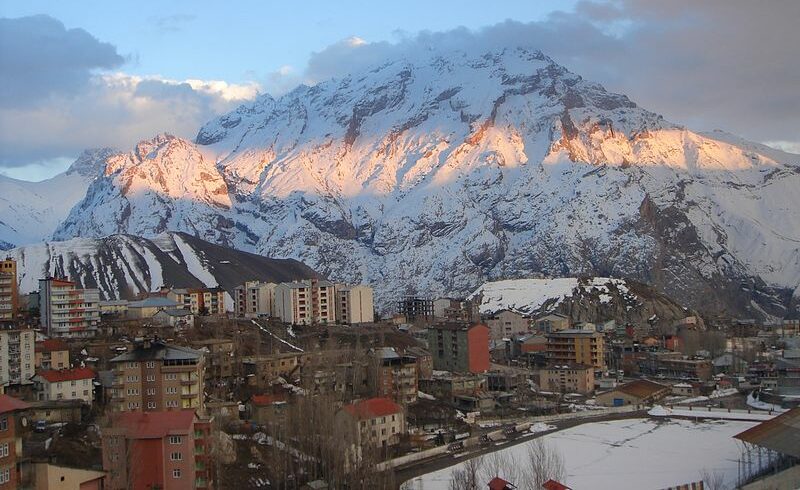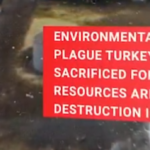
Environmental degradation continues to plague Turkey in 2023, as forests are sacrificed for mining ventures, water resources are exploited, and major destruction is wrought in Kurdish regions.
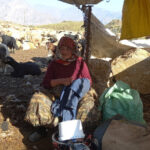
In the highlands of Hakkari, women decide for themselves and their production. While the men mostly stay in the city, the women move to the high mountain pastures. Life there is characterised by hard work that starts early in the morning. Some of the women work in the household, others in handicrafts, some in animal husbandry and some in agriculture.
Thus, on the one hand, the women in Hakkari shape their lives and play a decisive role in production. With their work, they oppose the economic crisis and patriarchy. The women of Hakkari have never lost touch with nature and live in deep connection with the mountains. Even in the city surrounded by high mountains, women spread the bond with nature.
Zozana Merga Butan (Mergabütan Highland) is located about 12 kilometres from the centre of Hakkari. Year after year, people come here to spend the summer producing agricultural products. Merga Butan, with its natural beauty, clear water, thousands of different plants and wild animals, is a beautiful place where people live for about six months. People come here between May and October and earn their living by selling the natural products they produce and through subsistence farming. Life in the highlands is dominated by women. While the men usually work in the city, the women carry out all the work of livestock farming in the highlands.
"In the highlands we can breathe"
Gülbeyaz Keskin, mother of four children, talks about how life in the beautiful highlands gives her breathing space. She talks about her everyday life, which starts early in the morning by milking the animals. Yoghurt and cheese are made from milk. "Sometimes people come here and buy it from us. What we can't sell, we keep for ourselves. We preserve some of it for the winter months," she says.
"The crisis hits us too"
Zübeyde Yetiş, mother of seven children, states that life in the highlands is nice, but the economic crisis is also hitting them hard. "We sell five liters of milk for 150 TL, but people say it is too expensive," says Zübeyde Yetiş, adding, "But compared to the increased costs, it is very cheap. Nowadays, you can't buy anything for 150 TL. We should be selling these products, which we produce under difficult conditions day and night, at a higher price, but people don't have the purchasing power. These products are our only livelihood. I feed my family of eleven with these products. The money has no value anymore."
"Life in the highlands is hard, but beautiful"
Nazime Tunç has eleven children. She milks her cattle twice a day. "As beautiful as life is in the highlands, there are also very difficult aspects. The summer months are hot and dusty, there is little we can do. Life is hard, but this is our life and we have to endure it. Our grandfathers and grandmothers also lived this life, and we also live this life. This is our work."
"A beautiful life"
Asiye Özdemir is another woman who lives in the highlands. She talks about how the days in the highland are very similar: "Life in the highland is very nice. Because of the crisis, not as many people can come to the highlands as before, since everything is very expensive. Because the prices for fodder, hay, grass and the expenses for the shepherds are very high, people can no longer feed their animals. We send our animals to the mountains first. Then we make cheese from the milk from them. We also bake bread for ourselves and our children. That's how our life goes on and on. There are not so many guests either. The work is not difficult for us, it is a very nice life for us."
"I recommend life in the highlands to everyone"
Zeynep Özer describes her life in the highland as follows: "We get up early in the morning and first do our prayers. Then we take care of our animals and milk them. We boil the milk and make yoghurt and cheese. I recommend life in the highland to everyone. It is both beautiful and difficult and dusty. In other words, it has both beautiful and difficult sides. There is a lot of peace and quiet here. More precisely, we don't deal with people so much. There is no gossip here. You deal with your animals, with your children. I do what I love. People tell me, 'Come back, stop nomadic animal husbandry,' but I love this life. I have been doing this work for 24 years. I make yoghurt, cheese and oil here. Most people from Hakkari come and buy the products here. Because the products we make here are very natural. That's why people come here and buy everything they need from us."
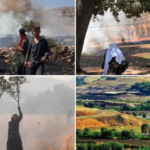
In the summer of 2023, Mount Cudi is once again the site of significant wildfires, marking a recurring environmental challenge that has profound implications for the region which is an important part of the Kurdish geography. This event brings to the forefront an interview with Zozan Pehlivan, an environmental historian of the modern Middle East, the Ottoman Empire, and Ottoman Kurdistan, conducted in 2020, now translated into English by MedyaNews, that explores the intricate connections between ecology, economy, and history in Turkey, Kurdistan and beyond.
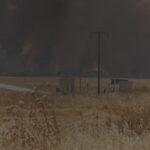
For the recently announced new invasion we have to expect chemical weapons attacks of Turkey! Already during the Turkish invasion of Serêkaniyê in 2019 the Turkish state used chemical weapons, including white phosphorus and napalm. 33 people were burned in this attack. Nature is being harmed and transformed in the long run. “Effects of chemical
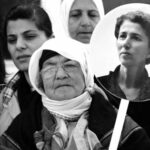
Women occupy a central role in the political project of « democratic autonomy » defended by the Kurdish liberation movement for the past fifteen years. We often hear talk of the parity practiced in all its institutions and of the male-female co-presidencies. But the accomplishments and the strength of the women’s movement go well beyond that and manage to unite a great number of women.
